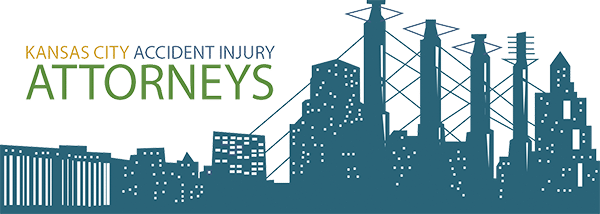“Minor” Rear-End Car Crashes Can Cause Major Brain Injuries
You may not be excited about the construction crews rolling in, but the upcoming road work on westbound I-435 could end up saving you from a costly head injury. According to officials, the Johnson County Gateway Project will improve the I-35 and K-10 interchanges along the expressway, helping to prevent the cause of over 85 percent of the accidents along those roads: Rear-end collisions by drivers attempting to get into their exit lanes.
If you’ve ever experienced one of these rear-end crashes, you know that they are at best inconvenient, and at worst a horrible event that will keep you out of work and your car in the shop for weeks on end. But for others, the worst-case scenario is one they never could have predicted after a “minor” car crash.
Can a Rear-End Crash Really Cause a TBI?
Too many injured drivers assume that minor damage to a vehicle means minor damage to themselves. However, rear-end collisions are a major cause of traumatic brain injuries (TBIs). Both damage to the car and a lower rate of speed have little bearing on whether a victim will suffer a traumatic brain injury in a crash.
Rear-end impacts in particular can have a violent effect on the driver’s head and neck, for a number of reasons:
Striking objects
Although the seat belt may prevent the driver from being ejected from the car, it may not be able to prevent him from striking his head on the windshield as he is thrown forward or on the head rest as he is thrown back against the seat.
Pulling back
As the head moves forward and backward, the neck can be pulled between the head and buckled-in body, causing muscle strain, whiplash, and possible cervical spinal injuries.
Repetitive shaking
Rear-end accidents rarely involve a single movement of the head. Most often, the head is thrown forward and backward several times, forcing the brain to accelerate back and forth inside the skull. The brain may strike the walls of the skull as a result, causing a concussion or neurological injury that can permanently affect the way a person thinks, feels or acts.
While the interchange project may save someone you love from a serious accident in the future, it will take a few years for the project to be complete.
Have You Or A Loved One Suffered A Brain Or Spinal Cord Injury?
From our headquarters in Kansas City, we serve all of Kansas and Missouri. We also have offices in Lee’s Summit, St. Joseph and Parkville, MO as well as Overland Park and Olathe, KS available by appointment. Call our office at 816-471-5111, start a live chat today, or use our contact form to schedule your free consultation.
Related Articles
You might also like from our library…
- How to Determine Who’s at Fault in a Roundabout Car Accident
- Who Is Responsible in a Car Accident With a Student Driver?
- What Is a Release of All Claims Form in a Car Accident
- What Is the Discovery Phase of a Car Accident
- Determining Liability After a Car or Truck Accident
- The Car Crash Victim’s Guide To Ruptured Spleens
- Semis May Not Stop After Sideswiping Smaller Cars on I-635
- Paying For Medical Bills Following a Car Crash
- Recovering From Emotional Distress After a Car Accident
- Kansas City’s 20 most dangerous streets for car crashes
- Kidney Damage From Car Accidents
- Injuries Sustained by Children in Car Crashes
- How to Make a Counteroffer to Your Car Accident Settlement
- Frontal Lobe Damage Caused by Car Accidents
- Causes Of Kansas City Car Fires: Can They Cause Smoke Inhalation Damages?
- Can a Sideswipe Car Accident Cause a Serious Head Injury?
- Car Accidents Often Caused by Missing or Damaged Road Signs
- Are You Suffering From Bone Bruises After a Blue Springs Car Accident?
- Are Drivers At Fault for Open Car Door Motorcycle Accidents?

